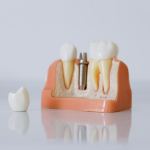- Like
- SHARE
- Digg
- Del
- Tumblr
- VKontakte
- Flattr
- Buffer
- Love This
- Save
- Odnoklassniki
- Meneame
- Blogger
- Amazon
- Yahoo Mail
- Gmail
- AOL
- Newsvine
- HackerNews
- Evernote
- MySpace
- Mail.ru
- Viadeo
- Line
- Comments
- Yummly
- SMS
- Viber
- Telegram
- JOIN
- Skype
- Facebook Messenger
- Kakao
- LiveJournal
- Yammer
- Edgar
- Fintel
- Mix
- Instapaper
- Copy Link
Introduction
Sobriety is hard – that’s the fact. Partly because addiction is unquestionably tempting and partly because people who battle with substance misuse frequently deal with a more significant issue that mind-altering substances can hide or distract from.
And the road to sobriety is unique to each person. Some people wake up one day determined to quit. Others, on the other hand, require additional assistance. So, they enroll in a rehabilitation program to help them get started.
Everyone understands the importance of a healthy, sober living environment in keeping recovering persons on track. However, many people struggle with understanding how to create a supportive environment that will continue to nurture development and improvement. That is what we will talk about in this article.
Let’s begin!
A Healthy Sober Living Environment: Role and Importance
The environment has a tremendous impact on addiction therapy and relapse prevention. People, locations, moods, objects, and drug or alcohol exposures are all possible triggers and typical reasons for relapse.
As a result, creating as healthy a sober living environment as possible is essential for a successful road to recovery.
There are four key factors affecting life in sobriety:
- Health. Overcoming addiction and establishing a good physique, lifestyle, and mind are the first stages of recovery. Furthermore, living a healthy lifestyle entails making deliberate decisions regarding abstinence, nutrition, and exercise.
- Home. Having a secure, stable, and comfortable place to live is also essential. Individuals struggling to provide such a living environment will have difficulty focusing on sobriety.
- Purpose. It is also essential to fill the days with meaningful activities. That’s why working while recovering is helpful. Furthermore, other activities such as volunteering, having a hobby, being physically active, spending time with family and friends, and helping around the house are excellent. Anything that gives life meaning is a legitimate activity. Unfortunately, depression and boredom may easily creep in if you have too much spare time. That is a guaranteed way to revert to old, unhealthy habits.
- Community. Recovering individuals try to maintain healthy relationships. Such relationships provide much-needed support and encouragement. The aftercare programs such as sober living homes can provide these individuals with an environment where continued support is possible. In addition, a caring family and friends are an essential part of this equation.
Understanding a Healthy, Sober Living Environment
Knowing what makes a healthy, sober living environment can assist you in creating one for yourself or your loved one in recovery. It is a healthy, stable, safe, clean, and, most importantly, supportive home. In addition, in this home, there are no drugs or alcohol.
Unfortunately, many people in recovery do not have a safe, sober living environment to return to once they leave the rehabilitation clinic. It might be because some of their family members or acquaintances are also substance abusers. Perhaps they don’t know how to offer essential assistance. Returning to such an unpredictable, unsupportive, and unpleasant environment will make it extremely difficult to stay clean, significantly raising the likelihood of relapse.
As a result, some people opt to relocate. Moving to a new environment will provide a fresh start and a firm foundation for their recovery in the circumstances like these. This is where they may practice mindfulness and self-care, where they can feel at ease and serene. In short, building a healthy, sober living environment can help them maintain sobriety and stay on track.
Creating a Healthy, Sober Living Environment
Now that you understand how sober living functions and its importance, let’s see how to create a healthy environment for an individual in recovery:
- There is plenty of support. It’s essential to be surrounded by people who genuinely support your road to recovery and are there for you no matter how you feel and what you need. On the other hand, distance yourself from people who don’t respect your recovery process and may trigger a relapse.
- Get rid of all mind-altering substances. Since staying on a good path during rehabilitation is extremely hard, getting rid of drugs and alcohol in your home is essential if you want this journey to be successful.
- Healthy diet. Addiction depletes your body of essential nutrients and minerals. It dehydrates you and may impair your ability to think rationally. The nutrients provided by a healthy diet give your body much-needed energy. As a result, your mood will be positively changed, frequently giving them a more optimistic attitude on their recovery.
- Sleep is essential. It is an important element of sobriety since proper sleep may improve one’s quality of life. A regular sleep routine can help you ensure that you receive enough sleep to support your recovery and enhance your overall health.
- A structured routine. This is strongly encouraged and supported in your sober living environment. Work, school, or an intense outpatient program may be included here. A routine will guarantee that you continue to find meaning and purpose in your life. It will also keep you active, minimizing boredom and loneliness – potential relapse triggers.
- Establishing and following house rules. House rules you can create for yourself include abstinence, timely payment of rent and bills, completion of regular duties, and holding/attending regular house meetings. This will assist you in keeping your life in order and under control, which is a huge accomplishment for someone in recovery.
- Access to all essential amenities. Your 12-step meeting or group therapy should be near your home. You should also be near a grocery store, a gym, and any other facilities you require to maintain a healthy daily routine.
Creating healthy habits will help you stay on the right track and make your recovery more bearable.
Conclusion
The road to rehabilitation is significantly more complicated than the time spent in an inpatient program. Unfortunately, there is always the possibility of relapse.
Furthermore, additional assistance is always needed, whether through group therapy, regular treatment, or home-based care.
One crucial thing is creating a healthy, sober living environment for the person in recovery. This is the only way to avoid the risk of relapse and get their life back on track.
Sure, it will not be easy, but taking one step at a time and being persistent will lead you to a successful recovery story. Good luck!


